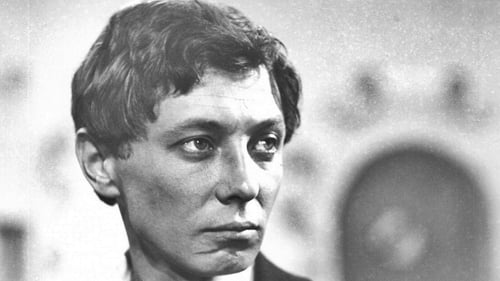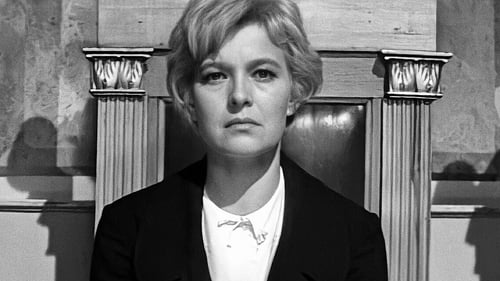
Lopushansky's second film focuses on a few hours in the life of a soloist musician during the siege of Leningrad, in WWII. The Leningrad philharmonic is going to play Tchaikovsky's 5th Symphony, which is to be broadcast to England. The soloist, like his fellow musicians, is weak and half-starved, and doubts whether he will be able to perform well enough.

This lavish Soviet/Czech co-production is based on Fyodor Dostoyevsky's famous novel, The Gambler, which tells the story of a Russian living in Germany, in a gambling resort. This film is set at the turn of the century, and was filmed in Karlovy Vary (Carlsbad), Czechoslovakia. Played by Nikolai Burlyayev, the gambler succumbs completely to his addiction, using up every resource he has (human, spiritual and financial) in his wagering, finally becoming a rootless drifter.

Courtier
The good-natured scholar Christian-Theodore arrives in a small country where miracles occur. He falls in love with the beautiful Princess, whose marriage is a matter of national importance, because her husband will become the new king. But unlike many “suitors”, selfish thoughts are alien to Christian-Theodore. He is sincerely fascinated by her beauty and releases his Shadow, hoping to get a faithful helper in his quest to marry the Princess. But the Shadow is the embodiment of egoism, greed and meanness. Quickly betraying the scholar, he marries the Princess himself and takes the royal throne.

Monk

neighbor-witness
A group of drunken young people severely beat the couple in love. Subsequently, Aleksandr Shchetinin died in the hospital after receiving injuries from beatings. The court, chaired by Judge Khromova, is to pronounce the death sentence on one of the four participants in the fight, who committed the fatal blow that led to death.

German apparently disavowed this, his first film, because of his co-director Grigori Aranov's more classical approach (and his kowtowing to Soviet authority); too bad, because it's something of a knockout. A brilliant, gripping portrait of the era of "Red Terror" during the civil war that followed the Bolshevik revolution, The Seventh Companion offers a superlative character study in General Adamov (Andrei Popov), a law professor in the tsarist army, who is incarcerated by the Bolshevik secret police along with many other members of the bourgeoisie. Finally released into the new world of the Soviet Union, the resigned officer finds that he has lost everything from his old life except a mantel clock that he carries through the night from place to place, until he ends up, like Rossellini's inmate seeking readmission to prison in Dovè la liberta?, back where he started.


Adaptación del relato de Anton Chejov. Durante un fin de semana en Yalta, el banquero moscovita Dimitri Gurov conoce a una joven que pasea con su perro. Ella es Anna Sergeyovna, una mujer atrapada en un matrimonio sin amor. Dimitri también es infeliz en su matrimonio. Se inicia un romance, que se corta con el fin de su estancia en Yalta. Dimitri pasa todo el invierno con la idea de volver a ver a Anna, desesperado va a buscarla, pero entonces surge la pregunta: ¿asumirán su relación o la mantendrán como una serie de encuentros a escondidas?

El Tratado de Paz de Riga [1921] establece la frontera entre la Bielorrusia panpolaca y la soviética, frontera que pasa por la finca del conde polaco Wadecki. La mejor parte de la mansión y el palacio resultan estar en territorio soviético. Todos los amaneceres los gallos, cacareando a ambos lados de la frontera, le recuerdan al conde cómo una mañana temprano unos campesinos rebeldes irrumpieron en su palacio al son de los gallos, y él, su mujer y sus invitados estuvieron a punto de morir...






